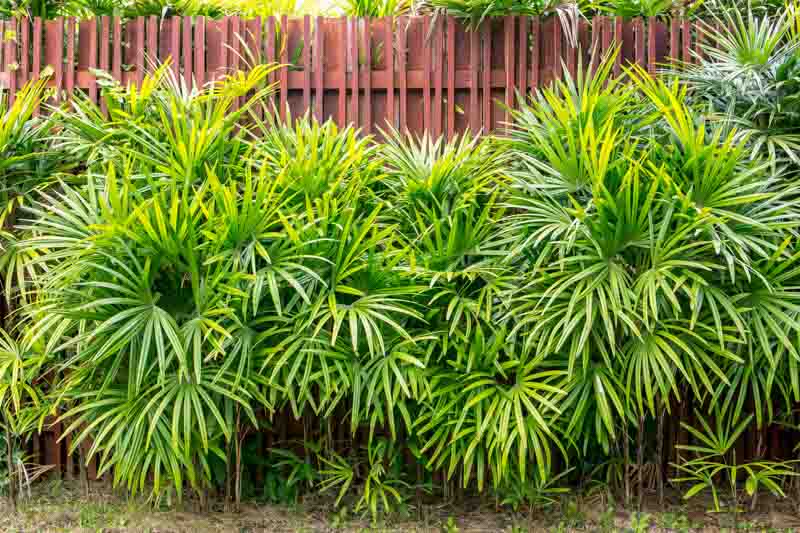Lady Palm: A Closer Look
The Lady Palm (Rhapis excelsa), with its lush, fan-shaped foliage, stands as a paragon of elegance and resilience, meriting a closer look through the lens of its fascinating characteristics and history.
Origin and History: Native to China and Taiwan, the Lady Palm has a rich history of cultivation, initially reserved for Chinese royalty. Its journey from secluded gardens to worldwide popularity underscores its timeless appeal.
Air Purification: Renowned for its ability to filter indoor air pollutants such as formaldehyde and xylene, the Lady Palm contributes to healthier living spaces, making it an environmentally beneficial and aesthetic addition to homes and offices.
Slow Growth: Characterized by its slow growth rate, this palm requires years to reach maturity, which adds to its value and longevity as a houseplant. This slow pace ensures a compact, robust appearance over time.
Feng Shui: In feng shui, the Lady Palm is believed to bring good luck and prosperity, thanks to its lush, fan-shaped leaves that symbolize wealth and refinement, enhancing the energy of any space.
Temperature Resilience: Unlike many tropical palms, Rhapis excelsa can withstand temperatures as low as 18°F (-7°C) for short periods, making it more adaptable to different climates and suitable for both indoor and outdoor environments.
Propagation: Its rhizome-based root system produces offshoots or “pups” that can be divided to propagate new plants, facilitating the sharing of this plant among gardening enthusiasts.
Longevity: With proper care, Lady Palms can live for decades, becoming long-standing fixtures in homes and gardens. Their enduring nature makes them a worthwhile investment for plant lovers.
Versatility: Ideal for both indoor spaces and warm, shaded outdoor gardens, the Lady Palm is highly versatile. It tolerates low-light conditions, making it perfect for brightening dim corners without needing direct sunlight.
Non-toxic: Safe for homes with pets and children, Rhapis excelsa is non-toxic, eliminating concerns about potential health risks to curious pets or little ones.

